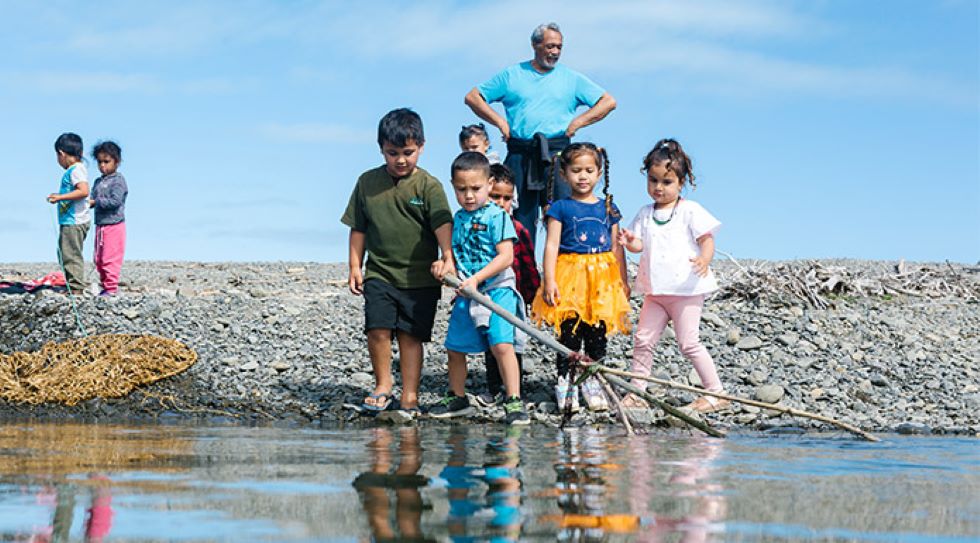


A feature length documentary tells the story of how Māori fought to reclaim their fishing rights in an epic battle that changed the course of history and ensured Māori participation in the nation’s fisheries resources for generations to come.
Co-produced by Tawera Films’ Toby Mills and Julian Arahanga of Awa Films, MANA MOANA, MANA TANGATA premieres at 8.30PM on Monday 18 August on Whakaata Māori and MĀORI+.
From the 1980s, when the Crown’s Quota Management System threatened to exclude Māori from their ancestral fisheries to the landmark 1992 Sealord Settlement, the first ever pan-iwi Treaty settlement, MANA MOANA, MANA TANGATA is a powerful account of resilience, legal brilliance, and cultural tenacity.
Signed on 23 September 1992, the Sealord Deed of Settlement was a pivotal moment in Aotearoa’s Treaty history: a victory that cemented Māori interests in the fishing industry.
The documentary captures the high-stakes legal and political battles that raged for over a decade, pitting iwi against iwi and forcing the nation to reckon with issues such as customary title, the rights of urban Māori, and tino rangatiratanga (self-determination).
The title MANA MOANA, MANA TANGATA references the eventual fisheries settlement allocation model based on iwi coastline (inshore fisheries) and iwi population (blue water).
Featuring the voices of those who fought the fight, including Tā Tipene O’Regan (Ngāi Tahu), who called it “a war fought with pens,” and Shane Jones (Te Aupōuri), who called the settlement “our net to reclaim the future” – MANA MOANA MANA TANGATA features interviews with those involved at all levels of the settlement – politicians, iwi leaders, industry leaders and whānau fishers.
With key themes of indigenous sovereignty, economic empowerment, environmental stewardship, and the intergenerational legacy of Treaty settlements, the film is a story that resonates with indigenous peoples around the world.
Thirty years on, the legacy of the fisheries settlement is an ongoing assertion of Māori resistance, passion, and ambition to secure a sustainable future.
As the film closes, it looks ahead – to collective opportunities, and the challenges that still lie beyond the horizon.